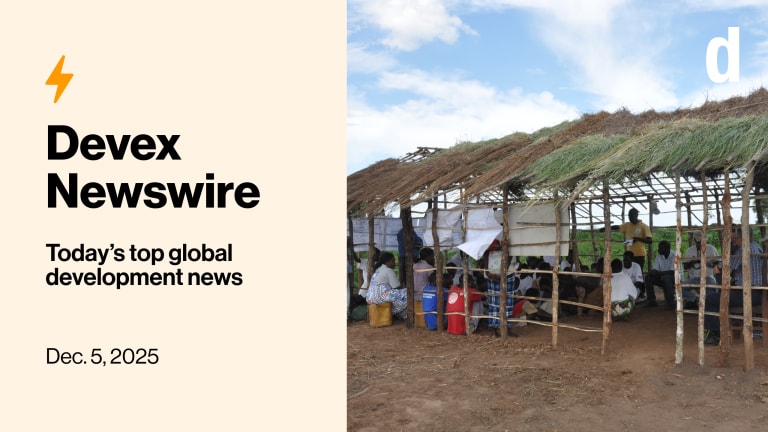
Six months after a massive earthquake struck Haiti, aid organizations warned that their resources for providing basic services in the Caribbean nation are running low.
“We are all stretched to our capacity and simply containing a critical situation, rather than solving it,” said Alastair Burnett, an operations manager with the British Red Cross.
Aid agencies are still providing most of the facilities for potable water supply and sanitation in the quake-ravaged nation, according to the Red Cross.
“From this moment on sanitation must be integrated into wider plans to rebuild Haiti and long-term solutions must be found,” Burnett said in a report released July 8 by the International Federation of Red Cross and Red Crescent Societies.
Haiti’s rehabilitation has been sluggish due to the extent of the disaster and shortfall in humanitarian aid, BBC reports.
The Irish government has distributed 4 million euros (USD5 million) in emergency funding and humanitarian supplies to aid organizations helping to rebuild Haiti. The amount, which was channeled through Concern Worldwide, Goal, Trocaire and World Vision, forms part of the 13 million euros pledged by Ireland for Haiti’s reconstruction in the next three years, according to the Irish Examiner.
The Clinton Foundation, meanwhile, has allocated some USD3 million to 12 aid organizations working to assist Haitians. The foundation also allocated USD1 million for communal hurricane emergency shelters and another USD1 million for operational support to the Interim Haiti Reconstruction Commission. It has directly purchased and shipped more than USD16 million worth of emergency relief funding and education and agricultural supplies to Haiti.
As of May 31, Medecins Sans Frontieres has spent some USD71.5 million out of the USD122 million it allocated for Haiti. The money was used for surgery, maternal health and shelter. The medical organization expects to spend some USD120 million in aid to Haiti by the end of 2010.
The American Red Cross, on the other hand, announced a series of new or expanded initiatives for Haitian earthquake survivors. These include USD12 million for health programs, USD8.6 million for shelter, and USD9.7 million for cash-for-work and cash grant/loan programs.
The World Food Program is also implementing cash-for-work schemes, as well as food-for-work, school meals and nutritional initiatives to ensure food security in Haiti. Some 35,000 Haitians are currently employed in WFP’s programs. The United Nations agency is looking at reaching some 140,000 people before this year ends.
A new U.N.-backed postal processing center in Haiti was launched earlier this week. Member nations of the U.N. Universal Postal Union donated more than USD500,000 to help Haiti get back on the global postal grid after its main post office and the building housing the Express Mail Service were destroyed in the earthquake.








